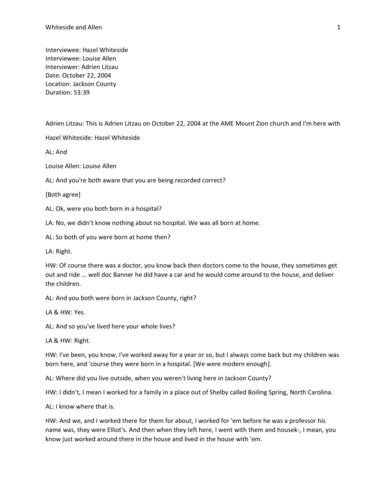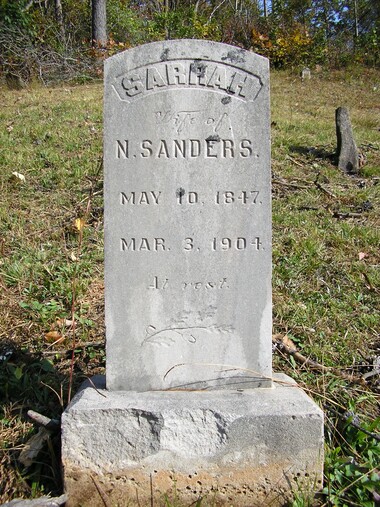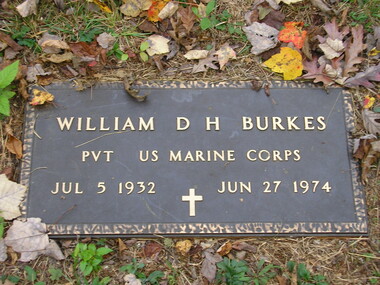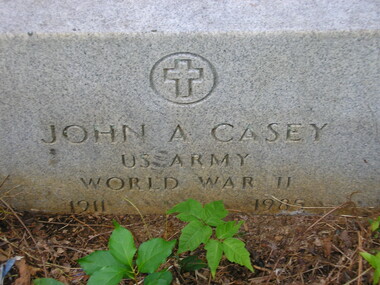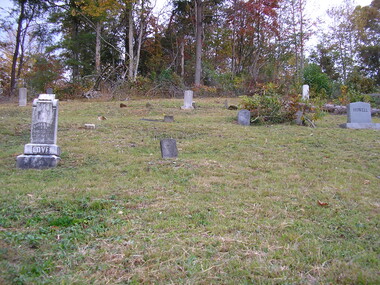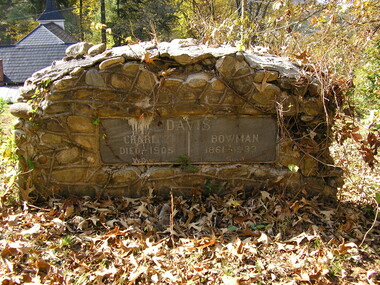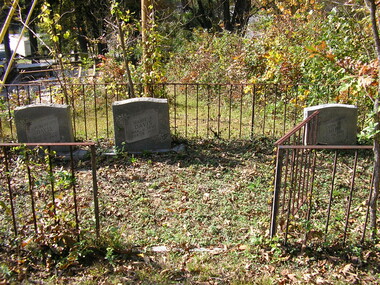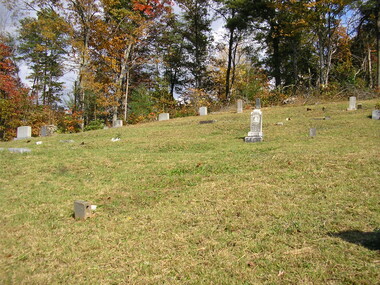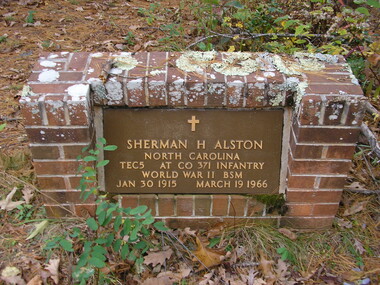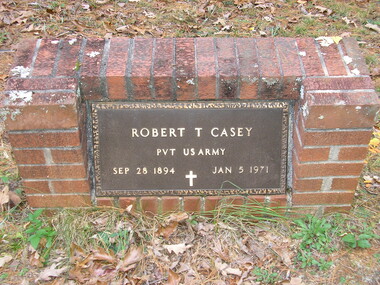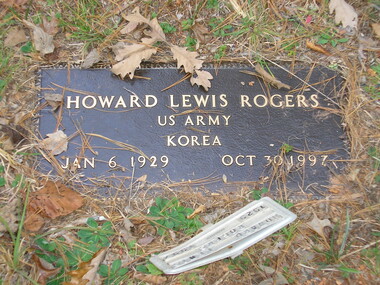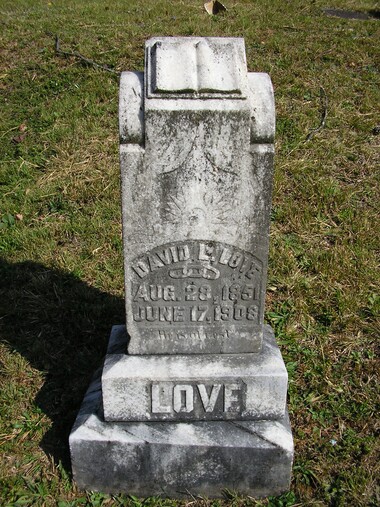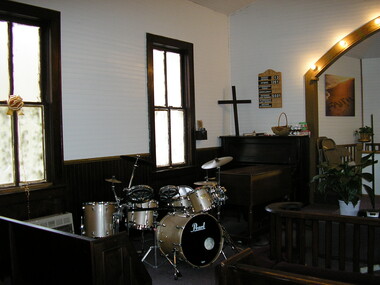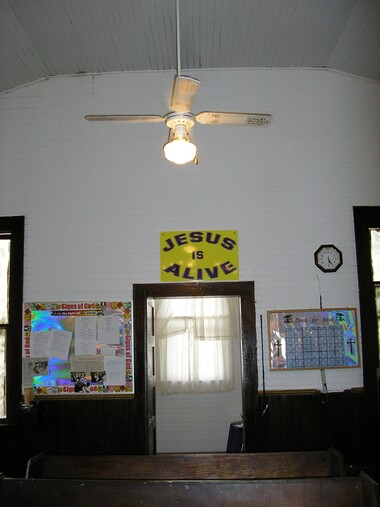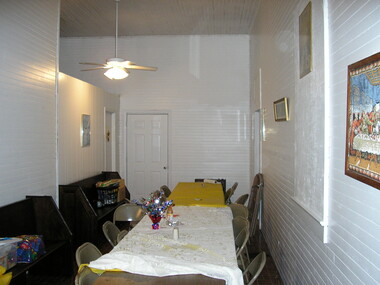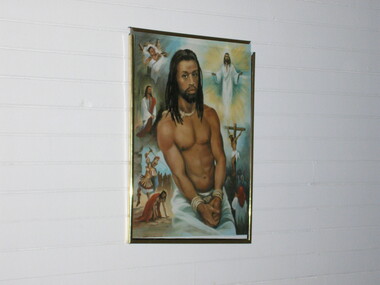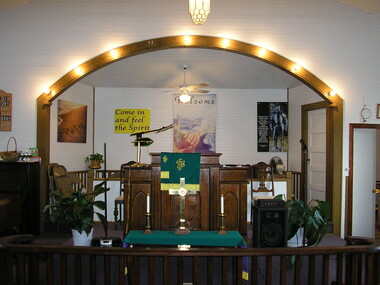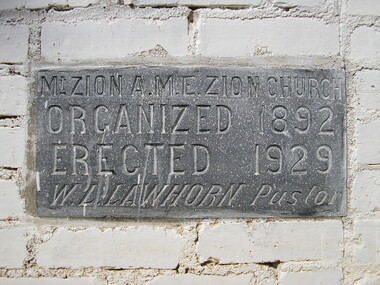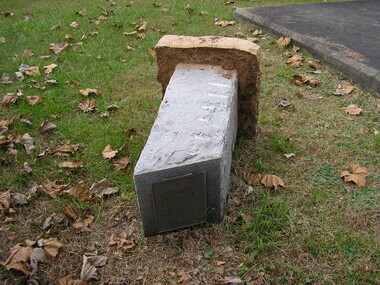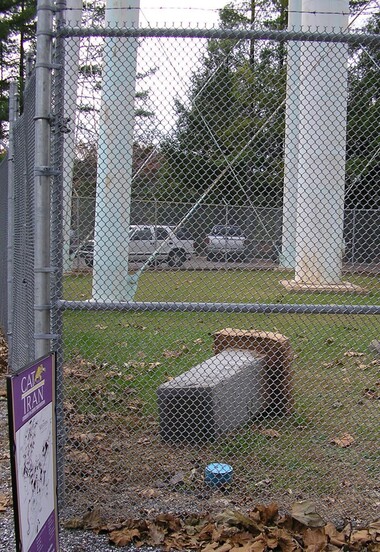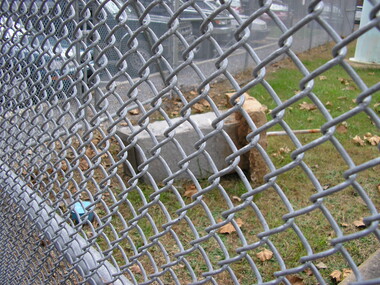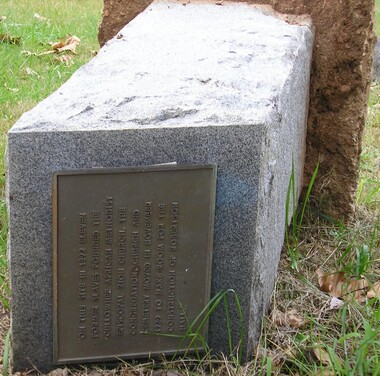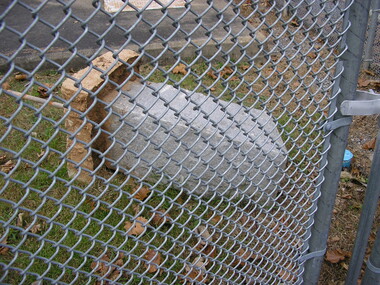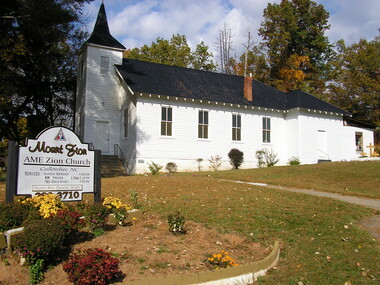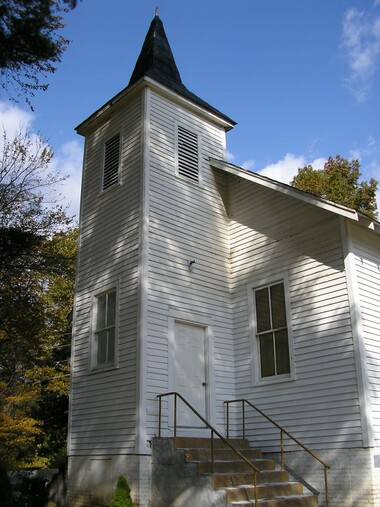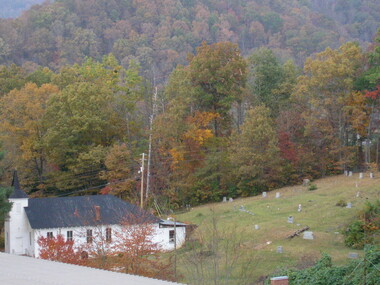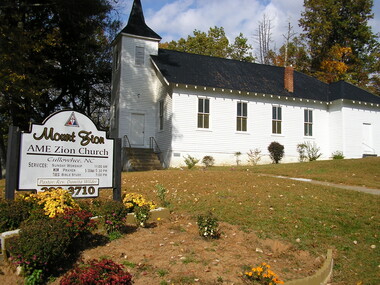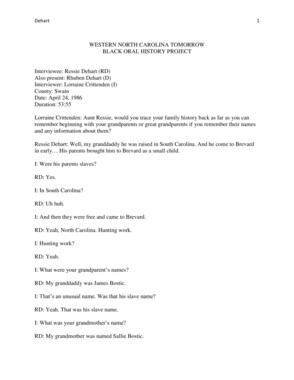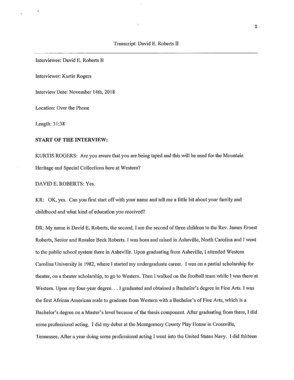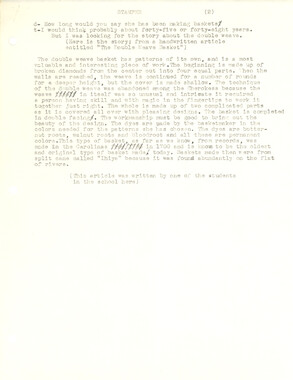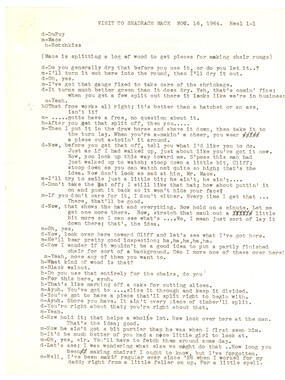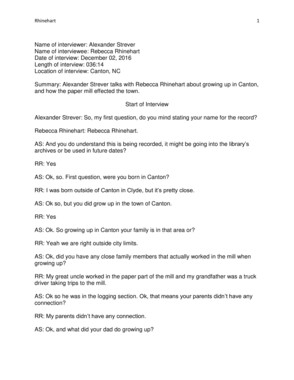Western Carolina University (20)
View all
- Canton Champion Fibre Company (2308)
- Cherokee Traditions (293)
- Civil War in Southern Appalachia (165)
- Craft Revival (1942)
- Great Smoky Mountains - A Park for America (2767)
- Highlights from Western Carolina University (430)
- Horace Kephart (941)
- Journeys Through Jackson (154)
- LGBTQIA+ Archive of Jackson County (24)
- Oral Histories of Western North Carolina (314)
- Picturing Appalachia (6772)
- Stories of Mountain Folk (413)
- Travel Western North Carolina (160)
- Western Carolina University Fine Art Museum Vitreograph Collection (129)
- Western Carolina University Herbarium (92)
- Western Carolina University: Making Memories (708)
- Western Carolina University Publications (2283)
- Western Carolina University Restricted Electronic Theses and Dissertations (146)
- Western North Carolina Regional Maps (71)
- World War II in Southern Appalachia (131)
University of North Carolina Asheville (6)
View all
- 1700s (1)
- 1860s (1)
- 1890s (1)
- 1900s (2)
- 1920s (2)
- 1930s (5)
- 1940s (12)
- 1950s (19)
- 1960s (35)
- 1970s (31)
- 1980s (16)
- 1990s (10)
- 2000s (20)
- 2010s (24)
- 2020s (4)
- 1600s (0)
- 1800s (0)
- 1810s (0)
- 1820s (0)
- 1830s (0)
- 1840s (0)
- 1850s (0)
- 1870s (0)
- 1880s (0)
- 1910s (0)
- Appalachian Region, Southern (15)
- Asheville (N.C.) (11)
- Avery County (N.C.) (1)
- Buncombe County (N.C.) (55)
- Cherokee County (N.C.) (17)
- Clay County (N.C.) (2)
- Graham County (N.C.) (15)
- Great Smoky Mountains National Park (N.C. and Tenn.) (1)
- Haywood County (N.C.) (40)
- Henderson County (N.C.) (5)
- Jackson County (N.C.) (131)
- Knox County (Tenn.) (1)
- Macon County (N.C.) (17)
- Madison County (N.C.) (4)
- McDowell County (N.C.) (1)
- Mitchell County (N.C.) (5)
- Polk County (N.C.) (3)
- Qualla Boundary (6)
- Rutherford County (N.C.) (1)
- Swain County (N.C.) (30)
- Watauga County (N.C.) (2)
- Waynesville (N.C.) (1)
- Yancey County (N.C.) (3)
- Blount County (Tenn.) (0)
- Knoxville (Tenn.) (0)
- Lake Santeetlah (N.C.) (0)
- Transylvania County (N.C.) (0)
- Interviews (314)
- Manuscripts (documents) (3)
- Personal Narratives (7)
- Photographs (4)
- Sound Recordings (308)
- Transcripts (216)
- Aerial Photographs (0)
- Aerial Views (0)
- Albums (books) (0)
- Articles (0)
- Artifacts (object Genre) (0)
- Biography (general Genre) (0)
- Cards (information Artifacts) (0)
- Clippings (information Artifacts) (0)
- Crafts (art Genres) (0)
- Depictions (visual Works) (0)
- Design Drawings (0)
- Drawings (visual Works) (0)
- Envelopes (0)
- Facsimiles (reproductions) (0)
- Fiction (general Genre) (0)
- Financial Records (0)
- Fliers (printed Matter) (0)
- Glass Plate Negatives (0)
- Guidebooks (0)
- Internegatives (0)
- Land Surveys (0)
- Letters (correspondence) (0)
- Maps (documents) (0)
- Memorandums (0)
- Minutes (administrative Records) (0)
- Negatives (photographs) (0)
- Newsletters (0)
- Newspapers (0)
- Occupation Currency (0)
- Paintings (visual Works) (0)
- Pen And Ink Drawings (0)
- Periodicals (0)
- Plans (maps) (0)
- Poetry (0)
- Portraits (0)
- Postcards (0)
- Programs (documents) (0)
- Publications (documents) (0)
- Questionnaires (0)
- Scrapbooks (0)
- Sheet Music (0)
- Slides (photographs) (0)
- Specimens (0)
- Speeches (documents) (0)
- Text Messages (0)
- Tintypes (photographs) (0)
- Video Recordings (physical Artifacts) (0)
- Vitreographs (0)
- WCU Mountain Heritage Center Oral Histories (25)
- WCU Oral History Collection - Mountain People, Mountain Lives (71)
- Western North Carolina Tomorrow Black Oral History Project (69)
- A.L. Ensley Collection (0)
- Appalachian Industrial School Records (0)
- Appalachian National Park Association Records (0)
- Axley-Meroney Collection (0)
- Bayard Wootten Photograph Collection (0)
- Bethel Rural Community Organization Collection (0)
- Blumer Collection (0)
- C.W. Slagle Collection (0)
- Canton Area Historical Museum (0)
- Carlos C. Campbell Collection (0)
- Cataloochee History Project (0)
- Cherokee Studies Collection (0)
- Daisy Dame Photograph Album (0)
- Daniel Boone VI Collection (0)
- Doris Ulmann Photograph Collection (0)
- Elizabeth H. Lasley Collection (0)
- Elizabeth Woolworth Szold Fleharty Collection (0)
- Frank Fry Collection (0)
- George Masa Collection (0)
- Gideon Laney Collection (0)
- Hazel Scarborough Collection (0)
- Hiram C. Wilburn Papers (0)
- Historic Photographs Collection (0)
- Horace Kephart Collection (0)
- Humbard Collection (0)
- Hunter and Weaver Families Collection (0)
- I. D. Blumenthal Collection (0)
- Isadora Williams Collection (0)
- Jesse Bryson Stalcup Collection (0)
- Jim Thompson Collection (0)
- John B. Battle Collection (0)
- John C. Campbell Folk School Records (0)
- John Parris Collection (0)
- Judaculla Rock project (0)
- Kelly Bennett Collection (0)
- Love Family Papers (0)
- Major Wiley Parris Civil War Letters (0)
- Map Collection (0)
- McFee-Misemer Civil War Letters (0)
- Mountain Heritage Center Collection (0)
- Norburn - Robertson - Thomson Families Collection (0)
- Pauline Hood Collection (0)
- Pre-Guild Collection (0)
- Qualla Arts and Crafts Mutual Collection (0)
- R.A. Romanes Collection (0)
- Rosser H. Taylor Collection (0)
- Samuel Robert Owens Collection (0)
- Sara Madison Collection (0)
- Sherrill Studio Photo Collection (0)
- Smoky Mountains Hiking Club Collection (0)
- Stories of Mountain Folk - Radio Programs (0)
- The Reporter, Western Carolina University (0)
- Venoy and Elizabeth Reed Collection (0)
- WCU Gender and Sexuality Oral History Project (0)
- WCU Students Newspapers Collection (0)
- William Williams Stringfield Collection (0)
- Zebulon Weaver Collection (0)
- African Americans (97)
- Artisans (5)
- Cherokee pottery (1)
- Cherokee women (1)
- College student newspapers and periodicals (4)
- Education (3)
- Floods (13)
- Folk music (3)
- Great Smoky Mountains National Park (N.C. and Tenn.) (1)
- Hunting (1)
- Mines and mineral resources (2)
- Rural electrification -- North Carolina, Western (2)
- School integration -- Southern States (2)
- Segregation -- North Carolina, Western (5)
- Slavery (5)
- Sports (2)
- Storytelling (3)
- World War, 1939-1945 (3)
- Appalachian Trail (0)
- Cherokee art (0)
- Cherokee artists -- North Carolina (0)
- Cherokee language (0)
- Church buildings (0)
- Civilian Conservation Corps (U.S.) (0)
- Dams (0)
- Dance (0)
- Forced removal, 1813-1903 (0)
- Forest conservation (0)
- Forests and forestry (0)
- Gender nonconformity (0)
- Landscape photography (0)
- Logging (0)
- Maps (0)
- North Carolina -- Maps (0)
- Paper industry (0)
- Postcards (0)
- Pottery (0)
- Railroad trains (0)
- Waterfalls -- Great Smoky Mountains (N.C. and Tenn.) (0)
- Weaving -- Appalachian Region, Southern (0)
- Wood-carving -- Appalachian Region, Southern (0)
- Sound (308)
- StillImage (4)
- Text (219)
- MovingImage (0)
Interview with Hazel Whiteside and Louise Allen
Item
Item’s are ‘child’ level descriptions to ‘parent’ objects, (e.g. one page of a whole book).
-
-
Whiteside and Allen 1 Interviewee: Hazel Whiteside Interviewee: Louise Allen Interviewer: Adrien Litzau Date: October 22, 2004 Location: Jackson County Duration: 53:39 Adrien Litzau: This is Adrien Litzau on October 22, 2004 at the AME Mount Zion church and I'm here with Hazel Whiteside: Hazel Whiteside AL: And Louise Allen: Louise Allen AL: And you're both aware that you are being recorded correct? [Both agree] AL: Ok, were you both born in a hospital? LA: No, we didn't know nothing about no hospital. We was all born at home. AL: So both of you were born at home then? LA: Right. HW: Of course there was a doctor, you know back then doctors come to the house, they sometimes get out and ride ... well doc Banner he did have a car and he would come around to the house, and deliver the children. AL: And you both were born in Jackson County, right? LA & HW: Yes. AL: And so you've lived here your whole lives? LA & HW: Right. HW: I've been, you know, I've worked away for a year or so, but I always come back but my children was born here, and 'course they were born in a hospital. [We were modern enough]. AL: Where did you live outside, when you weren't living here in Jackson County? HW: I didn't, I mean I worked for a family in a place out of Shelby called Boiling Spring, North Carolina. AL: I know where that is. HW: And we, and I worked there for them for about, I worked for 'em before he was a professor his name was, they were Elliot's. And then when they left here, I went with them and housek-, I mean, you know just worked around there in the house and lived in the house with 'em. Whiteside and Allen 2 AL: Okay. And the same with you, Ms. Allen? LA: I've never been away, I stayed here. AL: You've always lived here? LA: Always been here. AL: Okay. Have you ever traveled outside of this area to the city just for a vacation or a day trip or anything? Other than like Asheville or something like that, a little further away. LA: One time I went to Miami, Florida with some people I work for and that's as far as I've been. AL: How long were you in Miami for? LA: Well, just about a couple of weeks. AL: Okay. What did you think when you were in Miami, what did you think of Miami? LA: Well at that time I thought it was beautiful, especially the ocean. [Chuckles] AL: Oh, yeah. LA: Other than that, that's what I thought of that. It was beautiful. AL: What year was it? Do you remember? LA: Hmm ... No, it was, no, it was bound to be in the '40's or '50's, something like that, it was at least in the '50's. AL: Okay, so it was quite a while ago. LA: Uhhuh. AL: And you both have been members of the church here for your entire life? [Both agree] HW: Yes, I mean we've always went to school... church here from just growed up in this church. AL: Have you ever been to another church outside of this one? LA & HW: No. AL: No, okay. HW: We've always belonged to this church, no hopping around. AL: Okay, all right. What makes the church here special to you guys? HW: Well, the people, and our pastor, and you know, just people around. AL: Uh huh. Would you say that it's a tight knit group here like a large family group? LA & HW: Yes. Whiteside and Allen 3 LA: Just a family, we all just one big family. Family of God. HW: And the students, they just come and they've made theyself at home and it's just one big family we have. AL: The co.. HW: Uh huh, the college students. AL: The congregation invites the students to come down here? HW: Yeah, and they just some of them have, you know joined the [Inaudible] and while they're here, in school, and we just have a glorious time here at times. And sometimes we stay quite a while. [Chuckles] AL: Well that's all right, it can't hurt to be here longer. HW: Uh huh, no. AL: How big would you say the average congregation is here, how many people? HW: Well, it's hard to say. LA: At least, well HW: It varies. LA: At least, I say fifty. AL: Fifty people? LA & HW: I would think so, students and all on a Sunday. LA: Have only about eighteen members, regular members. HW: The last few days, the students have they been out for break? AL: Yeah. HW: Well it hasn't been as big, but the spirit is just as high. AL: So about eighteen regular members, but including the students about fifty people. HW: Yeah. AL: That's quite large for such a small church. Most churches, especially rural ones, they’ll function as a gathering place or center for the community. Would you say that your church here does that? LA: Well we don't have a community center, but we still have kids that have their own group, they come in. AL: Does the church have any type of community programs or Sunday school or anything like that? LA & HW: Oh yes, Sunday school we have that. Whiteside and Allen 4 HW: Every Sunday, we have bible study on Tuesday. And Mondays have a prayer at five o'clock in the morning and five in the afternoon. LA: And they' s a group that's called Read Beavis for Jesus, which we are a part of. And that's a group, but I think sometimes they meet in homes or on campus. AL: Ok, what would the role of that group be? LA: Well the younger people meet, we are only honorary. AL: But it's like a social gathering, you guys sit around and discuss the church or the bible? HW: I think that's what they do. Cause they ... they did have one time we met here with them and they just had like a church group here and we attended some. But not every day, but we came and participated and listened. LA: We also have Sunday school conventions anything that happens around the district if out church is involved, the pastor with volunteer to help ... HW: Right now is our general conference. The pastor, well Sunday she won't be here because she's at the conference. AL: Right, ok ... do either of you perform any special roles in the church? HW: Well I'm a deaconess, you know, community, communion service. LA: And I'm a class leader. And a Benevolent Secretary Treasurer. AL: How do you feel that the church here benefits your community? LA: Spiritually I say good. AL: Ok. HW: Very, very, very, nice ... we enjoy it lots. I mean it's uplift' in to come on Sunday and get what we get out of the service. AL: Absolutely. A lot of the time the churches, especially rural churches like this, can serve as a political area. Are there any time any discussions of politics or anything like that at the church? LA: Not that I know of, no politics. HW: I don't remember anything about any politics. AL: How about with the Civil Rights movement was that ever discussed here at the church? Or did you guys ever involve yourselves in any type of movement with that? LA & HW: No. HW: When we went to school. That was before they integrated. Well when me and my sister started school it was... we had to go in Sylva. And a lot of the time we had to get our books from where after the white had uh... had books sometimes they had the whole lesson in them and sometimes they didn't. AL: You ended up getting their hand-me-downs and things like that. Whiteside and Allen 5 HW: Yeah, that was the way the whole school... and they'd hand out the books and sometimes you wouldn't even have a book you'd have to study with somebody else. And that's the way our school was. AL: Where was your old school located at? HW: Down there, you know where the old community building is? AL: There in Sylva? HW: That building right above the community building... that was the school… I mean not the school we went to. That was the old building right over from the community building where we went to school. AL: Ok, does- HW: After they integrated our children went to Cullowhee Valley, I mean it was… LA: Camp Lab. HW: Yeah, it was Camp Lab at the time. Our children went, but now our kids are grown up. AL: Right, do you remember what year the schools here were integrated, desegregated? LA & HW: It was '69. HW: '69 I'm about sure it was '69 cause I was working at the college at that time, and I use' ta look over there to see... you could see over to Camp Lab, and you could see the children playing. AL: Oh, the old Camp Lab here on campus? LA: Yeah. AL: I didn't realize that building was that old. LA & HW: Yeah. HW: It was the ... before they made Camp Lab, McKee was the school. AL: Right, Does the congregation here, do you get involved with any other churches in the community? HW: Yeah at times. We have always come here Sunday morning. But lots of time we go to another church in the afternoon when they have… LA: You know, we was in the with the United Methodist Church doing the Martin Luther King Day was over there, well it hasn't been in the past year or two, but they have in the past. We go there for Martin King, and there's a time we been to the Baptist church, the Cullowhee Baptist Church over there for Sunday morning sunrise. AL: So you would say that you do associate with other churches in the area often? LA & HW: Oh yeah. AL: How about like the other AME Zion churches, like in Asheville do you do anything with them? LA: They're in our conference. Well the Blue Ridge conference goes from Asheville down to Tennessee, and Hopkins Chapel church there in Asheville is on our district. Whiteside and Allen 6 HW: This year the conference is in Forest City, that's where our preacher has gone, and this year we'll have a new bishop ... our old bishop ... I think for four years I believe it is that they keep one bishop then he'll have to step down and give another bishop ... then this year we'll have a new bishop. Our presiding elder, he died, just here recently about two months ago he died, and they come and hold courtly conference and thing like that, that's what our elders do. AL: I've been told that you guys have always had a really great choir here. With the choir do they sing with other choirs or anything like that? HW: Well that was when we ... were growing up ... now college students come in and have the choir. AL: No I'm talking about when you were younger. HW: Oh yes we use to have a wonderful choir, and we'd go places and sing. AL: Really, you guys would go to conferences and things with the choir? That's great. Both of you were in the choir at one point or another? LA & HW: Well yeah. AL: In recent years women have tended to play a larger role in the religious community ... HW: Oh yeah they really have. Well have a lady pastor now. AL: Oh absolutely, yes ma'am ... how was she received by the congregation when she first came here? HW: Well it was, you know, we've had women before, but she was a young lady and this was her first calling, and she was supposed to have just filled out somebody else's term. But ... AL: How long has she been here for? LA: Six years. AL Oh ok. So she .... HW: We had a wonderful pastor ... the Hodges that left here, they were wonderful people. They were from Tennessee and so the sent them back to Tennessee. AL: My fiancé she's Methodist and they switch her pastor around quite often depending on where they need to be. LA: Uhhuh. AL: How many female pastors have you had here in the past? LA: This makes four. HW: Yeah, she's the fourth. AL: Do you remember when the first one was? LA: Look in this book and we will ... [A reference book of many of the church pastors and church events] HW: That Ms. Hayworth. Whiteside and Allen 7 LA: I'm slow so just give me time. AL: Oh we're in no rush. LA: Ok in 1924 we had Reverend W .L. Young .. .in 1925 ... HW: He's talking about the women. LA: We had V. W. Williams ... but you hunting the women folk ... AL: Yes ma'am. LA: Mrs. Marie Hayworth, and Ms. Bernice Scurry, and Ms. Mary Jones, and now Ms. Damita Wilder. HW: That's the women preachers we've had. AL: And what year was Mrs. Hayworth? LA: Well uh. that was in 1959 and '60. AL: Wow. for that time for her to have been able to become a female pastor. that's quite amazing. LA: Well the Methodist peoples have pretty much accepted it. but the Baptist people they have a time. I noticed the church over here, when this preacher’s wife started standing in for him. they had quite a thing about the woman. AL: Right, and that's the way I understand it. Like I said my fiancé she's Methodist and I go to church with her quite often and their pastor is female and the one previous to her she was also female. And from my understanding ... HW: Well from what I remember the Methodist people have not had any problem with the women I don't think, but the Baptist they don't accept the women I don't think. AL: What would you say is your earliest childhood memory of being in the church? LA: We were so young I don't think. HW: We were at the age of around five or six when we really began. because we had a real young choir. a real choir. I’m pretty sure it was five or six years old. AL: When you were a child you enjoyed being here? LA: Yes I've always enjoyed being here. HW: We had no choice our whole family had to go. Unless Dad brought us, we walked. When we was too small to walk dad would just bring the ones that were big enough, that he thought he could handle. You can’t have but so many small children like that. AL: How large was the congregation then do you remember? HW: Well we had quite a few a people back then I remember they had the big elder, anyhow, when the presiding elder come it was a big thing. LA: They come from all over the district. Whiteside and Allen 8 AL: Do you remember when the church was moved from on top the hill? LA&HW: Vaguely. HW: We were little. AL: What do you remember about that? HW: I just remember dad telling about that they were moving the graveyards, the graves. That they moved them over here, and dad would tell us about how some of the people looked when they dug 'em up, they even had to dig up the graveyard from other there and move it over here. AL: Well all of those coffins that were up here, they were hand made here in the community right? HW: Yeah they were, right. LA: And the graves dug… HW: I remember they were a man right down here below the bridge down here, there was a little place and his name was Sam Fulbright. He built coffins. AL: Ok, for the church here? LA&HW: uhhuh. HW: And to when we was small and we went to school we had to get on a boat and cross the river. AL: Really? And was that before the bridge was put in down there? HW: Oh lord no, when we ... we always went to school, we all get in the boat, and sometimes we was so cold till your feet frost bit and even your hands and everything... and we even had to wear those long underwear up and under ... AL: Yeah you probably wanted to. HW: But sometimes you get to school and your feet be hurting so bad and swelled up, water be running out of your feet, but we still had to go. We had a bus, we would meet the bus across the river. AL: So you were just having to ferry across the river? LA: Uhhuh. HW: Just the boat we paddle across to one side, and sometimes someone would take the boat to the other side and when school was out and we got off we'd have to stand and wait until somebody brought us the boat. AL: Right, ok. You guys apparently have tried to record the history here already, with the information there where were you able to get that from? LA: Well with what my daddy told me and what I had ... well if events had come up I would record them. AL: Ok, how about any prior information before, before you started writing the history ... you said you started writing it in '79 right? Whiteside and Allen 9 LA: Yeah, and that past that what he didn't, what my dad didn't tell me I didn't know. AL: So most of the information before that you had gotten from your father. LA: Dunno, because the records that was kept was destroyed or misplaced or something so that part was lost. AL: I know that in the late 1880's the women of the church here opened a school called the Allen School over in Asheville. Do you guys know anything about that? HW: Allen Home. No I didn't know too much about that, there was a lot of our kids went there, but we wasn't ... when you go away to school you have to have money, and they was so many of us that we never got to go away to school. Well, all of us, as we growed up every one of us went away to school except the twins. I went to Lincoln Academy, in Kings Mountain. And two or three of, well my two younger sisters they went to Lincoln Academy. LA: [Inaudible] HW: And one she went to finish Livingston College. AL: Ok, you said that some of your children went to the Allen School? HW: No, no. AL: Did you know anybody that did actually go? HW: Well my sister-in-law, Stanley's mother [See Stanley Roger's interview]. AL: He had actually mentioned that, but he said he really wasn't sure about a lot of the specifics. HW: Well now she went there. And that's the only one from around here that I really know that went to the Allen home. AL: Do you know anything about her experience there ... if she liked it or? HW: Well, when you get away from home it's always an experience. AL: The graveyard of here was moved .... HW: From up there on campus to right over here, then they's a graveyard, it's a family graveyard just above it. AL: How far back is the family graveyard? HW: It’s just above it. LA: But see all the old members that was moved from that cemetery wasn't all put in this cemetery. There is a Roger's cemetery up on Forest Hill, as you go up around up in there, called Roger's Cemetery. AL: Over here on campus? LA: Well right above campus. As you go around Forest Hill, go around the country club around there, back around there. And there is a place called Cemetery, and of course its mixed with white and black. Whiteside and Allen 10 AL: And so some of the graves were moved from the old church site to Roger's? LA: Some of them was moved over there ... AL: Why was that do you know? LA: Well I don't know why they would move some, but evidently they had family plots over there. AL: If I'm not mistaken there were seventy-six graves up there originally. LA: They was seventy-six that was moved from that cemetery. AL: Oh I see, do you know how many it was that was originally there? LA: Well, I don't recall my dad telling me that. AL: I know that Mr. Rogers had mentioned something about a grave that wasn't found up there that wasn't found, that may have been built overtop of, do you know anything about that? LA & HW: I don't know anything about that. LA: We can cancel that. AL: Alright. During the time when the graves were moved, how did the people of the congregation feel about that? LA & HW: I don't have any idea about that either. HW: My dad was a part of helping remove it, but I regularly remember when they built this church ... well my brother he was just a baby, the first time that we come to move into this church, I remember they had a, having an unveiling of the church they was having all the windows and everything .. . they called it an unveiling, I don't remember what the sermon was about but it was towels that the put around all the windows. AL: Are these the original windows here, the glass and everything? LA&HW: Uhhuh. AL: How about extensions, has anything been built onto the church since '29. LA: Yeah the whole back part, you can go back and see the kitchen part, it’s all been built. AL: So what was originally here when the church was first built? HW: Nothing. LA: Well there was an addition built ... they called it the Mason House right down here, when they had the Mason meeting, the Eastern Star. AL: Ok so a Masonic lodge then? LA: Uh huh, that's what they did. But it was down here but eventually after they moved all the stuff out people started living in it. AL: So originally when the church was built was it just this main room here? Whiteside and Allen 11 LA: Yes just this sanctuary was all it was. AL: Ok, since the university was responsible for the moving of the church, what do you feel about the university? Does anybody in the congregation have any ill feelings or anything? HW: I don't remember any. LA: Not really. HW: That thing ... we will not be moved again. AL: I saw that in the charter that it was signed wherever you guys were located it would not be moved again. Do you know anything about the deal that was made for the land up there or anything? LA: No, past my time. AL: Have either of you ever worked over at the university? HW: Oh yes, I worked over there for twenty years over there I retired from over there, I worked in Scott dormitory the whole time. It was being built when I started over there. Now the second floor on Scott wasn't finished when I started working there, we had to go around and they was moving everything. The second floor wasn’t finished, and school was about to start and they had to rush up to get the second floor. LA: I worked in the cafeteria for awhile, then I stopped to have kids and that was it. AL: So you just worked over there for a short period? LA: Yes, two or three years not long. AL: What was it that you did over there? HW: Just a housekeeper, cleaning rooms and bathrooms and such things as that. There was a house keeper to each floor, and when I went there they had house mothers, then it turned to RA's. AL: See that's what they use over there now is RA's, or something ... Resident Assistance. HW: Uhhuh. Resident Assistance AL: Since you have been here, your whole life pretty much, how do you feel the church has changed over time, compared to now? HW: It's progressed quite a bit, I feel like we made a lot of progress, especially about the building part of it. As we grow older we get more people that are educated and enough to, ya know, build it up. AL: As far as the congregation goes, how do you feel that's changed over time, as far as the incorporation of more young people? HW: Yeah, they's more and we got quite a few babies, and things like that, cause all our kids has grown up and now the students they coming in with their young children. AL: As far as spirituality goes, here in the church, do you think the sermons have changed any over time, as far as, how they used to be to now ... Whiteside and Allen 12 LA: Yes, well I remember it, the old folks use to shout, but the modem days, why we have a more Pentecostal like change in that church AL: Ok, so it's mad a change toward a more Pentecostal type spirituality? LA: Yeah uh huh. That's what it is. AL: As far as, like the hymns and things like that have you noticed any change there over time? LA & HW: Yeah they have changed, they sing those songs [Laughter] we sing Amazing Grace. It's you know you know what the music is now. And they even have the holy dances and that's something that has changed. When we growed up if that dancing would not have gone on in church. LA: I still can't get use to it. AL: So do you prefer a more traditional type of environment? HW: We just roll with the punches. LA: We just serve the lord, we might not be a noisy as some, but we still praise him. AL: It doesn't matter how much noise ya make you're still here. LA & HW: Right. AL: As far as the different pastors that you guys have had over the years are there any that stand out in your mind as your favorite? HW: Now the Hodges, they are people that really, we just growed from them, when they came here, it seemed like everything just progressed. After they left things just kept going. AL: And would you say the same Ms. Allen, would you agree that the Hodges were your favorite? LA: Well pretty much I guess, I like other pastors too, but things have changed just a little, I enjoy the services now just as well so it doesn’t matter. AL: How about any that you would consider not really liking, any pastors here that you had any disagreements with or that you didn't care for the way that they present the sermon or worship? HW: Well we had one that I don't wish to comment on, I mean it was a bad experience. AL: That's fine, don't worry about it I totally understand. LA: It was very bad. AL: As far as the future of the church here what do you see, what do you see the future holding for the congregation? HW: Well obviously its grown quite a bit. AL: More incorporation of young people and things like that? HW: A lot of times it's the young people that minister to us. AL: What is the longest time that you have had any one pastor here for? Whiteside and Allen 13 LA: Reverend Toms, we had him for eleven years. AL: What was the reason that he stayed for eleven years do you know? HW: Back then we voted for the pastors and we would vote for him to come back every year, and he would come back and minister to us for eleven years. AL: Yeah, Stanley mentioned something about that. And you’ve stopped the voting now, am I correct? LA: No we don't vote now. We aren't allow to vote anymore. HW: They say now if a pastor moves he is asked to move and they can stay as long as they want to, but if they desire they will move them. It’s been said that people stay as long as they want to, but you know, young people like to move on to better things. AL: So, the way it is set up now, they stay as long as they want to unless they are called upon by the. HW: The conference, uh-huh. AL: The conference. HW: Every once in awhile they move them, but most of the time they just get tired and wanna go on a little further. And some of them just move, will go with their family. AL: As far as the congregation goes is there anybody that’s been a member here as far as you can remember, that you would say has been a real leader for the congregation or the community or anything, anybody who did anything extraordinary to help the community or anything like that? LA: Well, quite, several of them have you know just come in and play the organ, you know students, and now for a while we didn't have anybody in here lately, I mean one guy, in the spring, he graduated he played the organ. For the summer we didn't have any, they just sing without music. But uh, all of a sudden, this guy, a white guy plays the drums and then there's the black guy that plays the organ and the piano. AL: So there are white members of the congregation? LA: Yeah. AL: How long has that been? How long has it been that there have been white people a part of the congregation? LA: Well, practically ever since I can remember they's been. Now I remember, too when we were young, the older people used to come and join us in the service and they'd be just join in with us. AL: And that was accepted? That was encouraged by the congregation? LA&HW: Yeah. LA: And we have a white guy now that has come in and he just works diligently. AL: Well, that's great. So, he's become a part of the family? LA: Yeah, he has and it's, everything just works like clockwork. Whiteside and Allen 14 HW: Let's get back to this one, you know, you said if there's any help in the community. See the benevolence that we have, we set aside a benevolence, a gift, you know, a ministry of kindness. And then ever who needs it then they are helped through the church with our benevolence. AL: Okay, so it would be a group of people rather than one person. HW: Uh huh. Well anyone that is in need that's what this benevolence treasury is for. AL: Can you recall anything that the benevolence has done for any family or any one person? HW: Well, several times we have given, you know, food baskets and things like that at Christmastime to the people [inaudible]. LA: Put on their lights, you know. HW: That's the way we administer to our poor. AL: Okay, well that's great. A lot of churches have programs like that and it's great to see one actually work, you know. HW: Yeah. AL: You are a part of that benevolence, correct? How many members to that are there? HW: Uh huh. Well, we are not organized we just give to whoever the pastor takes from the treasury and gives to. AL: Okay. And how are the people chosen to receive this, like the food baskets. Do they ask for help, or is it just kind of set up? LA&HW: No. LA: Their name is said. HW: And then, too communion Sunday if they's somebody in the community sick, we take communion to the people in the home. AL: Well, that's great. Does most of the congregation live here in Cullowhee and Sylva? HW: Well, most of the people that belong here, like I say the college students, that's what we depend on. So, it's quite natural that most of them live right here. And they just come from everywhere, sometimes busloads of them come. AL: That's great. As far as the past goes, what do you guys recall about Martin Luther King, as far as his death goes, do you guys remember that? HW: Yes, I remember it very well. AL: How were your feelings about that? HW: It was well, you know a rare, very sad, when Martin Luther King died we went to the, they had service over here at the Baptist church. AL: There was a large turnout for that, I assume? Whiteside and Allen 15 HW: Yes. LA: The first one. HW: It was a very sad thing when Martin Luther King died, he was a great leader. AL: Absolutely. As far as the congregation goes do you get people stopping by here that are maybe passing through town, stopping for a Sunday service? LA&HW: Yeah. HW: Not only the black people either, it's the white. Two or three Sundays ago we had two batches of white people there, had brought their kids to Sunday School and they want to join the service. AL: And they were just folks that were passing through? LA & HW: Yeah. AL: That's great. HW: And we have that most every Sunday, somebody's popping in. LA: Somebody comes in. AL: That's great, especially for such a small congregation to be able to have people come in like that. HW: We hardly ever have a Sunday that we don't have a visitor. AL: Let me go ahead and flip this over. HW: And preach the word and all that. AL: So you have a guest speaker come in from another congregation? HW: Yeah. Now we had quite a few at the anniversary, they came from, where was that? We invited the whole congregation from that church. LA: Here in Asheville, the congregation of Asheville. Somebody Reverend Wilder knows. HW: Well both groups from appreciation, and I forgot where they was from. LA: Both of them was from Asheville. AL: As far as Reverend Wilder goes, you guys get along with her well? LA & HW: She's a great lady. She's wonderful. AL: That's the same thing that Mr. Rogers had said is that she was a really good pastor. You had mentioned something earlier about a funeral home? HW: Oh, we used to didn't have, you know a funeral home to take the bodies to so they was brought to the homes and then to the church. And that's where the wake would be, family night as you call it now. AL: Right. Whiteside and Allen 16 HW: It would be in the church and they'd get to sing and pray over the body. LA: And back then when somebody died, why, everybody'd come to the house and just joined in and just prayed with the family. Everybody helped everybody, I mean when we were little, any time anybody needed something done, they would just come to them. But people of this day has grown away from that. Everybody is for his own self. AL: Yeah, it seems to be how I understand it, a lot of times in the past the church would be a more tight knit group than what it is today. You mentioned until you had a funeral home, when or where do you use? LA & HW: Well, that's Moody. LA: I think in 1922 they bought the funeral home. AL: Is that here in Sylva or Cullowhee? LA: Yeah, it's still in Sylva. HW: There's two funeral homes in Sylva, one's Milton and Moody. Course Moody's has been there since '22. And then we take our insurance out and go there and that's where a lot of the funerals are held, at the funeral home. AL: So more of the service and the respects are done at the funeral home now rather than here at the church? HW: Uh huh, there's a lot of that that goes on now, because they just have a little service at the funeral home and a lot of the people don't even belong to the church that they bring to the funeral home. And everybody, Moody's has always been so great. I remember when my Aunt died, she was living in Washington and they brought her to the home and then, you know the body would go through the embalming and everything. AL: What do you think about more of the services being done at the funeral home rather than at the church? Do you like that? HW: It's okay. LA: They still come here, the bodies. We have had a few of them that have gone to the funeral home. AL: How about weddings? Do you have any weddings or anything like that here at the church? HW: [Chuckles] Nobody's marrying anymore. [laugh] [inaudible] The last wedding that we had was over at the Baptist church because our church they said it wasn't big enough to… When I went to the wedding I said well Lord they coulda all fit, but that's what he wanted. AL: So, do you enjoy living in this area? LA & HW: Yeah, I don't have no problems, some people ask well what is there to do? LA: We can't keep our young folks, I couldn't keep none of my kids here, you still have your kids here. HW: I have both of mine, they don't live with me, but they live around. Whiteside and Allen 17 LA: Mine went so far and called it [inaudible] so they left. AL: How many children do you have? LA: I have three, three girls. AL: Where do they live at? LA: Well I have two in Asheville and one in Warner Robbins, Georgia. They're all married and have their own kids. AL: What were their reasons for moving away? LA: Well, there wasn't anything to do around here. AL: Anything to do as far as jobs? LA: Right, to find jobs. AL: And you said that you ... HW: Well, my son, he's a deputy sheriff of police. AL: Here in Sylva? HW: Right here in Cullowhee. And my daughter, she works at the community center, but she lives down and under me and he lives just above me. And he was in the Air Force for four years and then he came back and finished school at Western. And he was a manager at UPS for years, and then, now he's a deputy sheriff. AL: How long has he been a deputy over here? HW: About two years. He's the first black deputy in Jackson County. AL: That's a small victory there, huh? HW: [chuckles] And he loves it, he just loves it. Lord, all of the stuff that he tells about [chuckles] I can never see myself into nothing like that. AL: I don't know that I could imagine myself doing something like that, but somebody's got to do it. HW: But he thinks it's fun, I mean he just… AL: I know several people that work in the military or law enforcement and they love it. HW: And he just enjoys it. AL: That's really good. LA: And he just works diligently with it. HW: And then I have my husband's son's brother, he worked as a police up here at Western and then he worked in town down there, now he's he works at the theater. AL: Oh, the Quin Theater out here in Sylva? Whiteside and Allen 18 HW: Yeah. But I mean, the black has made quite a bit of progress, just go to school and do what everybody else is doing. AL: And what do you feel about that as far as the progress, do you think that it's enough or… HW: Well, everything except the pay. AL: That's the same thing that I hear from a lot of folks and the same thing with women making less money. HW: Uh huh. Yeah, everything except the pay, it's great for the progress and everything but money's what everybody needs now. AL: As far as your interactions with other people around here, you don't have any trouble? LA & HW: No, no problems. AL: That's good. I actually have spoken with not only Mr. Stanley, but we're going through and interviewing a lot of people and I have talked to a lot of people that said that it's great here as far as... LA & HW: Uh huh, we growed up here in Cullowhee and I mean, as far as I can say. HW: I don't know of any other place I'd rather be. LA: When my children were in school they had their friends, just a lot of friends they would come to my house even for birthday parties or just to come and have a sleepover at night. AL: And that's a lot of the same thing Mr. Stanley Rogers had said was that a lot of the white children, there was no difference there, everybody played together. HW: Uh huh, everybody played together, growed together. LA: My children did, they had no problem making friends. AL: That's great. LA & HW: My son, sleepover and everything else, the same just like their colored friends were friends. AL: And so many people get the stigma and they expect it not to be that way, it's so refreshing. LA: They's still some that frown on you. AL: Oh yeah, absolutely. HW: Old die hard. It's not that noticeable because our children they just go on, they wanna do that, that’s what they do. LA: [inaudible] our children or anything. AL: It’s great to hear that, like I said, so many people are like, oh it’s in the south. HW: It’s not really. And you see how Jackson County is building up, everybody seem to be one big family, very seldom that there’s anything like that. AL: As far as I've been told that's how it seems to be in this area. Whiteside and Allen 19 AL: Do either of you have anything you would like to add? LA&HW: No. AL: This is October 22nd at the AME Zion Church and I appreciate both of your time.
Object
Object’s are ‘parent’ level descriptions to ‘children’ items, (e.g. a book with pages).
-
Adrien Litzau interviews sisters Hazel Whiteside and Louise Allen (Mae Louise Allen) on October 22, 2004 for the Western North Carolina Oral History Project. Born in 1923 and 1922, Whiteside and Allen have been members of AME Mount Zion Church in Cullowhee their entire lives. Included with their interview are 35 images of the cemetery and the church. The first image shown is the unmarked grave of a slave. They discuss the history of the church including their dad’s role in the relocation of the church and cemetery to make room for the growing Western Carolina Teachers College. Whiteside and Allen talk about growing up in the church, their role in the church, and its role in the wider community. They talk about their experience going to school (including having to cross the river on a boat) and growing up as African Americans in Jackson County.
-
